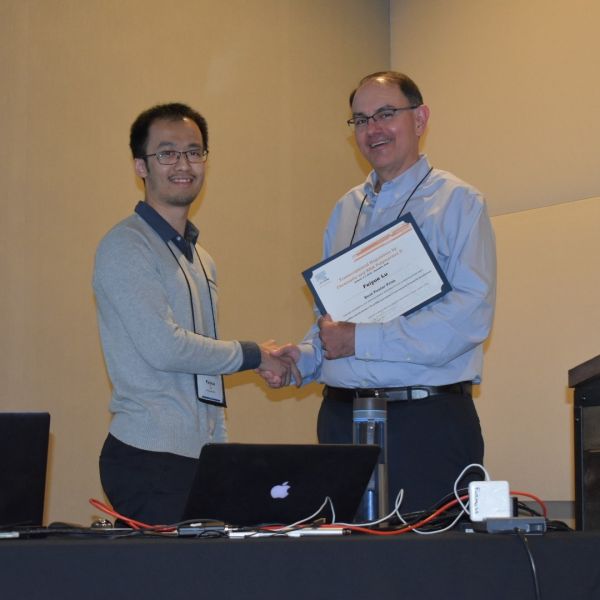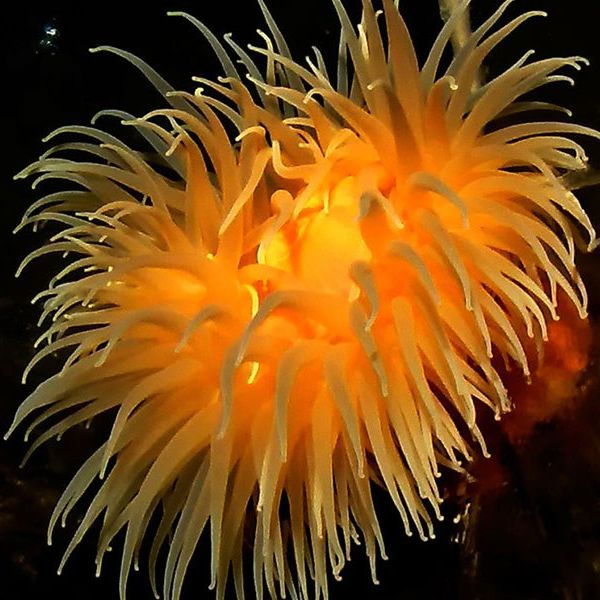News
Nov 02, 2014
First detailed picture of a cancer-related cell enzyme in action on a chromosome
A landmark study by Huck faculty researcher Song Tan provides new insight into the function of an enzyme related to the BRCA1 breast cancer protein.
Full Article
Oct 14, 2014
Novel chemistry turns conventional polymers into biomedical supermaterials
Jian Yang and his lab are developing extraordinary materials – fluorescent, biodegradable, and 3D-printable – for regenerative engineering, targeted drug-delivery, and non-invasive imaging
Full Article
Oct 14, 2014
Video profile: Marta Byrska-Bishop & Ross Hardison
Molecular, Cellular, and Integrative Biosciences Ph.D. candidate Marta Byrska-Bishop and faculty researcher Dr. Ross Hardison study genomics and gene regulation in relation to inherited diseases.
Full Article
Jun 30, 2014
Malaria parasite manipulates host's scent
Malaria parasites alter the chemical odor signal of their hosts to attract mosquitos and better spread their offspring, according to researchers including Mark Mescher, Consuelo De Moraes, and Andrew Read, who believe this scent change could be used as a diagnostic tool.
Full Article
Jun 17, 2014
World's cocoa crop could get a big boost from a simple, non-toxic spray
Huck scientists find Theobroma cacao trees' natural disease defense is bolstered by glycerol foliar treatment
Full Article
Jun 09, 2014
Until death do us part: genetics reveal that threatened reef corals and their symbiotic algae live together but evolve independently
New research reveals that Caribbean corals and the algae that inhabit them form a remarkably stable relationship new knowledge that can serve as an important tool in preserving and restoring vital reef-building corals.
Full Article
May 29, 2014
Probing Question: Could polio make a comeback?
Melissa Beattie Moss talks with Craig Cameron about the possibility of another polio epidemic.
Full Article
Aug 03, 2010
Ancient gene family linked to the future of epileptic seizures
A potassium-channel gene belonging to an ancient gene family more than 542 million years old is opening new avenues in epilepsy research, and may one day allow researchers to develop more effective drugs with fewer side effects for the treatment of epileptic seizures.
Full Article

Oct 12, 2018
MCIBS Grad Student Feiyue Lu Wins Symposium Poster Award
Feiyue Lu's poster was chosen by symposium participants.
Full Article

Jun 05, 2018
Modern brain circuitry retains ancient foundation
Studying sea anemones' molecular nerve-signaling machinery, Tim Jegla finds that a burst of evolutionary innovation laid the foundation of our nervous systems more than half a billion years ago.
Full Article